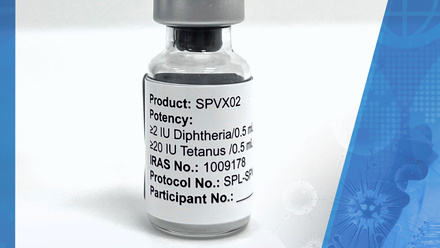Highlights from the BIA Future of UK Regulation Conference 2023
This is the first of four blogs reporting on the BIA’s sell-out conference, ‘The Future of UK Regulation: Driving innovation in the life sciences’. Here is an overview of measures taken by the MHRA to shape itself as a world-class, independent sovereign regulator, and some key takeaways from the three sessions of the conference. An in-depth look at each of these sessions will be published in the coming weeks.
The UK is entering a new era in medicine regulation as the Medicines and Healthcare products Regulatory Agency (MHRA) supports fast and effective clinical trial turn-around and delivery of the UK’s Life Sciences Vision, and new legislation is developed to guide its future as an independent sovereign regulator.
The vision is to take advantage of the regulatory flexibility that comes from no longer being part of the European Medicines Regulatory Network, to improve access to medicines for patients and to be a driver for innovation in the UK and beyond.
Among the challenges is the dramatic fall in the number of commercial clinical trials in the UK and capacity issues that led to a huge backlog of clinical trial applications awaiting approval over the summer.
Meanwhile, the new international recognition procedure for granting marketing authorisations is intended to speed up approvals, but also raises questions over when to use this new route and when to use the national marketing authorisation procedure.
Added to this, is the opportunity that arises from the application of novel technologies, most notably artificial intelligence, to improve the regulatory system and optimise the route from initial discovery to marketing approval, patient access and life cycle management of medicines and devices.
“We meet as a community that has faced a challenging 2023,” said Steve Bates OBE, Chief Executive of the BIA, opening the conference. “It’s important we talk about how we get UK clinical trials back on track and ensure the regulatory system supports innovation. The BIA is committed to working with the MHRA and to making the case for proportionate, sensible regulation,” he said.
This was reflected by Dr June Raine DBE, Chief Executive of MHRA, in a keynote address that set out how the MHRA has been restructured into an integrated agency with multidisciplinary teams that can support drug development from design to delivery.
The MHRA now aims to be “in full delivery mode” while at the same time iterating new ways of working and delivering even more agile services, Dr Raine told the conference. There will be a constant process of reviewing whether services are optimal and risk proportionate. “All of this will be on the bedrock of regulatory science to support benefit-risk decision making,” she said.
“I hope I’ve shown in this presentation that the MHRA has changed from being a watchdog to an enabler,” Dr Raine concluded.
Getting UK clinical trials back on track
One of the most critical issues facing the MHRA in the overhaul of how it regulates clinical trials and supports the UK to be one of the best countries in the world to conduct clinical research, was a dramatic fall in the number of commercial trials being run here.
“I think everyone in this room can understand and believe that having an effective and efficient clinical trial system from front to back is key in delivering medicines to patients and in terms of having a healthy life sciences industry,” said Tim Stonehouse, Vice President International Regulatory Strategy, Vertex and Chair, BIA Regulatory Affairs Advisory Committee.
Front to back must encompass everything from scientific advice to the completion of a study, as set out in the review of commercial clinical trials carried out by Lord James O’Shaughnessy.
More than two years before the O’Shaughnessy review, the Future of Clinical Research Delivery provided a vision for a more patient-centred, pro-innovation and digitally enabled clinical research environment that would build on the successes and the lessons of COVID-19. This gave a mandate to accelerate implementation.
Clinical trials application assessment
The MHRA has taken a cross-agency approach and introduced new ways of working to address what were clearly some significant shortcomings in its assessment process. As a result, performance has improved and a backlog of almost 1,000 applications was cleared between July and September. Since 1 September 2023, all applications received are being assessed within the statutory timeframes.
Standardising practice
While the main regulatory function of the Health Research Authority (HRA) is to provide research ethics committees review, it has a second function, which is to coordinate and standardise regulatory practice for research across the UK. That has given it a central role in underpinning the programme of work to implement a whole system approach.
International Recognition Procedure
In one of the most notable moves made since becoming a sovereign regulator, the MHRA is creating a new international recognition framework via which it will grant UK marketing authorisations to medicines approved by other trusted regulators.
The International Recognition Procedure will come into effect in January 2024, replacing the European Commission Decision Reliance Procedure that was brought in to fill the regulatory gap after the UK left the EU in 2021, to ensure patients were not denied access to new, innovative medicines because of separate authorisation from the MHRA.
NICE’s response
Marketing approval does not equal market access. As the gatekeeper, NICE is also thinking about how it needs to change its processes to ensure that the MHRA’s new regulatory flexibility and the introduction of the International Recognition route will speed up patient access to innovative products.
International lessons
Swissmedic has operated as a sovereign regulator since it was established in 2002, giving it significant experience of treading the line between relying on the assessments of trusted counterparts and carrying out the most complex reviews of newest technologies itself to maintain and advance its in-house expertise.
Regulation of novel technologies
The regulatory response to COVID-19 demonstrated the speed and agility with which the UK system can act. While it is unrealistic to think it can always operate at pandemic intensity, the experience points the way to how the UK can build on its new regulatory flexibility and expertise in regulatory science to bring novel technologies to market.
Emerging technologies – opportunity and challenge
It is now possible to use Deepmind’s Alphafold AI system to predict the 3D structure of a protein from its amino acid sequence and design drug hits against pockets in these structures, in silico. AI can now be used across discovery and clinical development.
There is a risk-benefit balance to be struck between encouraging innovation and providing access to emerging technologies, whilst ensuring patient safety.
For more information, please contact Dr Christiane Abouzeid:
More news and updates






